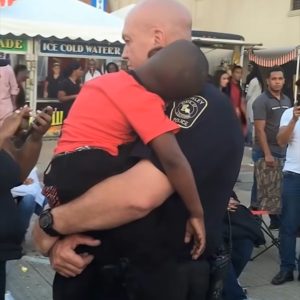At a crowded Juneteenth festival, a fun day turned tense when I lost sight of my nephew, Zavi. I’d only looked away to buy a funnel cake, but in that instant, he vanished. “Panic hit me like a wave.” I searched frantically—until I spotted him asleep in a police officer’s arms.
The officer, calm and composed, explained, “Didn’t want to leave him alone.” I was relieved, but the crowd’s reaction was mixed. “Must be nice to get that kind of response,” someone muttered. That’s when I realized—the response might’ve been different if Zavi hadn’t looked so small or harmless.
The officer, Officer Davies, had been kind and gentle. But I couldn’t shake the thought: what if Zavi had been older, or looked less innocent? Would things have ended the same?
My sister and I decided to share the story online—thanking Officer Davies while also addressing the racial tension that hung in the air. The post went viral. Reactions ranged from support to skepticism. One powerful comment came from Officer Davies himself. He acknowledged the praise and added, “It was a reminder of the work that still needed to be done.”
That message opened doors. The police department invited us to speak at a town hall on bias and community relations. It was tough but meaningful. Officer Davies spoke too, stressing the need to understand public perception and to build trust.
What began with fear became a chance for dialogue. We didn’t become activists, but we found our voice. Officer Davies continued community work, and we stayed involved, hoping to keep the conversation alive.
Zavi, still too young to understand, will one day hear the full story—a reminder that awareness, empathy, and honest conversations can lead to real change.

